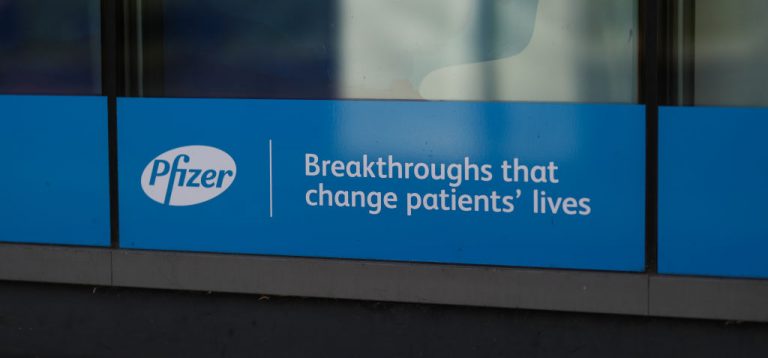A new peer reviewed study has found that Pfizer’s novel messenger RNA gene therapy Coronavirus Disease 2019 (COVID-19) vaccine reverse transcribes into human DNA in as little as six hours post-exposure.
In a paper published Feb. 25 in the journal Current Issues in Molecular Biology, researchers from Lund University in Sweden examined Pfizer-BioNTech’s BNT162b2 injection, which has been one of the two most widely distributed across the entire planet.
“The safety profile of BNT162b2 is currently only available from short-term clinical studies,” the team noted in the Introduction. “Less common adverse effects of BNT162b2 have been reported, including pericarditis, arrhythmia, deep-vein thrombosis, pulmonary embolism, myocardial infarction, intracranial hemorrhage, and thrombocytopenia.”
“To better understand mechanisms underlying vaccine-related adverse effects, clinical investigations as well as cellular and molecular analyses are needed,” they added.
FURTHER READING:
- Brace Yourselves, Pfizer’s Three Dose Omicron Vaccine is Coming
- Apple Watch Records Two Days of Arrhythmia Leading Up To Myocarditis Death of 26-Year-Old Following Pfizer Booster
- Ontario Study: Double Jabs Give Negative Vaccine Efficacy Against Omicron, 95 Percent of Cases Fully Vaccinated
Success
You are now signed up for our newsletter
Success
Check your email to complete sign up
Researchers noted that a May of 2021 study by U.S. researchers had shown that SARS-CoV-2, the virus that causes COVID-19, could reverse transcribe into human DNA and questioned whether the same could happen with Pfizer’s vaccine, which uses messenger RNA instructions encapsulated in a manmade lipid nanoparticle to instruct human cells to manufacture the virus’s spike protein for the purpose of eliciting an immune response.
“In this study, we aim to examine the effect of BNT162b2 on a human liver cell line in vitro and investigate if BNT162b2 can be reverse transcribed into DNA through endogenous mechanisms,” they stated.
The scientists conducted in vitro tests on a human liver cell line tagged Huh7 involving 0.5, 1, and 2 milligrams of BNT162b2 over a course of 6, 24, and 48 hours.
In the Discussion section, they explained their reasoning for the type of cell used and the dosages, “A previous study on mRNA vaccines against H10N8 and H7N9 influenza viruses using a similar LNP [lipid nanoparticle] delivery system showed that the mRNA vaccine can distribute rather nonspecifically to several organs such as liver, spleen, heart, kidney, lung, and brain, and the concentration in the liver is roughly 100 times lower than that of the intra-muscular injection site.”
“In the assessment report on BNT162b2 provided to EMA [European Medicines Agency] by Pfizer, the pharmacokinetic distribution studies in rats demonstrated that a relatively large proportion (up to 18%) of the total dose distributes to the liver.”
In the Abstract, scientists noted, “We detected high levels of BNT162b2 in Huh7 cells and changes in gene expression of long interspersed nuclear element-1 (LINE-1), which is an endogenous reverse transcriptase.”
During the Results portion of the paper, it was noted, “A previous study has shown that entry of LINE-1 protein into the nucleus is associated with retrotransposition.”
In turn, the team sought to probe whether “BNT162b2 is reversely transcribed into DNA when LINE-1 is elevated.”
To do this, they purified the DNA in the Huh7 cell line that was exposed to the 0.5 mg dosage of BNT162b2 across all time frames, confirming Pfizer’s injection is reverse transcribed into human DNA as early as the 6 hour interval.
“Our study shows that BNT162b2 can be reverse transcribed to DNA in liver cell line Huh7, and this may give rise to the concern if BNT162b2-derived DNA may be integrated into the host genome and affect the integrity of genomic DNA, which may potentially mediate genotoxic side effects,” warned the researchers.
They continued, “At this stage, we do not know if DNA reverse transcribed from BNT162b2 is integrated into the cell genome. Further studies are needed to demonstrate the effect of BNT162b2 on genomic integrity, including whole genome sequencing of cells exposed to BNT162b2, as well as tissues from human subjects who received BNT162b2 vaccination.”
Notably, a study produced by two Chinese scientists working at Sweden’s Umea University in October of 2021 found that both SARS-CoV-2 and the spike protein produced by vaccination was abundant in cellular nuclei and “inhibits DNA damage repair by hindering DNA repair protein recruitment.”















